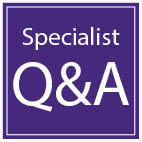 Our editorial industry is made up of people carrying out a huge range of tasks across many different sectors. Although we are bound by common aims – to make text consistent, accurate and clear – our chosen areas of work can differ in fascinating ways.
Our editorial industry is made up of people carrying out a huge range of tasks across many different sectors. Although we are bound by common aims – to make text consistent, accurate and clear – our chosen areas of work can differ in fascinating ways.
Kate Haigh (Kateproof) is a freelance proofreader and copy-editor. She has answered some questions on one of her specialisms: working for business clients.
1. Briefly, what’s your work background?
My CV is pretty varied but I have in-house editing and proofreading experience at a magazine publishing company (Govnet) and also for Datamonitor. I have also managed a team for a multinational corporate bank and have worked for the public sector.
2. How long have you specialised in this particular kind of editorial work, and how did you get started?
The first freelance client I got was almost five years ago and was pure serendipity: I went on a web writing course and got offered a lift home by a woman who worked for a local business. She took my card and passed it to her marketing department and the rest is history…
3. What specific knowledge, experience or qualifications do you need?
I find this is where working for business clients differs from working for publishers as I don’t think you need formal training, though confidence is key and I don’t know how confident I would feel if I didn’t have the training under my belt. Experience possibly counts for more as many business clients want to know that you understand their needs and their material. I work on a lot of annual reports, for example, and my experience in banking helps because I understand a lot of the terminology and the common elements that most reports include. One of my USPs is that I studied German at university so though I don’t offer translation services, I work for quite a few German companies as I understand some of the common issues German speakers encounter when writing in English.
4. How do you go about finding work in this area?
Nowadays, people find me through word of mouth and my website. However, when I was first starting out, I went to local networks and met lots of other local businesspeople from various industries. Clients and leads didn’t appear overnight but after about 6 months’ networking at various groups, I started to reap the rewards and continue to do so now even though I don’t currently attend any groups.
5. What do you most enjoy about the work and what are the particular challenges?
Not all business clients are the same. Working for design agencies or marketing teams within big companies often means I liaise with someone who understands the role of proofreading or editing and what I need to do, but lots of companies don’t have this and therefore need me to help them work through the process of getting the work proofread/edited and how best to deal with those changes. With design agencies, I find the work goes backwards and forwards through various iterations of the file as the client, the designers and I all make changes, and this can get quite complex.
Though some people may find the lack of a style guide or formal process less appealing, I like the fact I can influence the work and help a company achieve efficiencies.
Finally, I also have a lot of last-minute, urgent work requests and it can be quite tricky either finding time to fit them in or letting regular clients down. However, on the plus side, if I’m staring down the barrel of a workless week, that very rarely actually happens as something comes in and I go from twiddling thumbs to being very busy.
6. What’s the worst job you’ve had – and/or the best?
That’s really difficult to say purely because I’ve worked on such varied projects. I can’t deny that some of the reports have been very dry but I wouldn’t want to name and shame here. I also had one instance of bad scope creep and that definitely wasn’t enjoyable.
7. What tips would you give to someone wanting to work in this field?
Be confident! Many business clients don’t understand what the editing/proofreading job entails so you need to have the confidence to explain what you’re doing (and sometimes why) and also the confidence to make it clear if something isn’t in your remit.
8. What is the pay like – and are there any other perks?
I find the pay is better than what publishers pay but, for me, more importantly, I set my rates and can vary them depending on the client’s preference: hourly, day rate (common for agencies) or set fee.
9. What other opportunities do you think editorial work in this area might lead to?
I’ve been offered in-house work, and though I wouldn’t choose to return to that permanently, it can be enjoyable as a brief change of scene.
Answers written by Kate Haigh, a freelancer since 2010 working on a variety of projects for publishers, business clients, authors and academics.
Proofread by SfEP professional member Louise Lubke Cuss.
The views expressed here do not necessarily reflect those of the SfEP.


So I guess that only confidence itself wouldn’t be enough, related to the paragraph number three, because all the people are only talking about confidence and confidence, and nothing else.
Thank you for sharing your experience by the way!